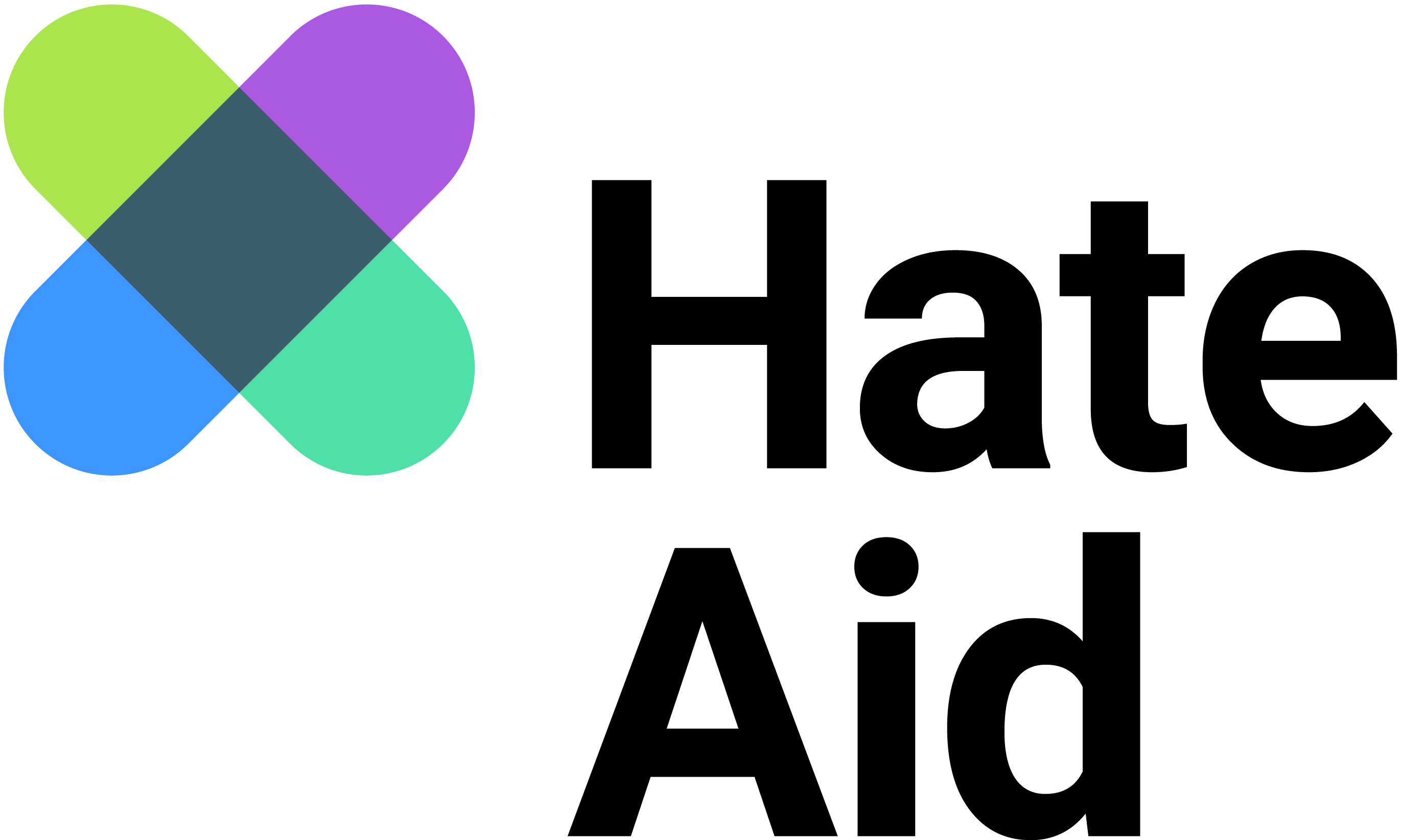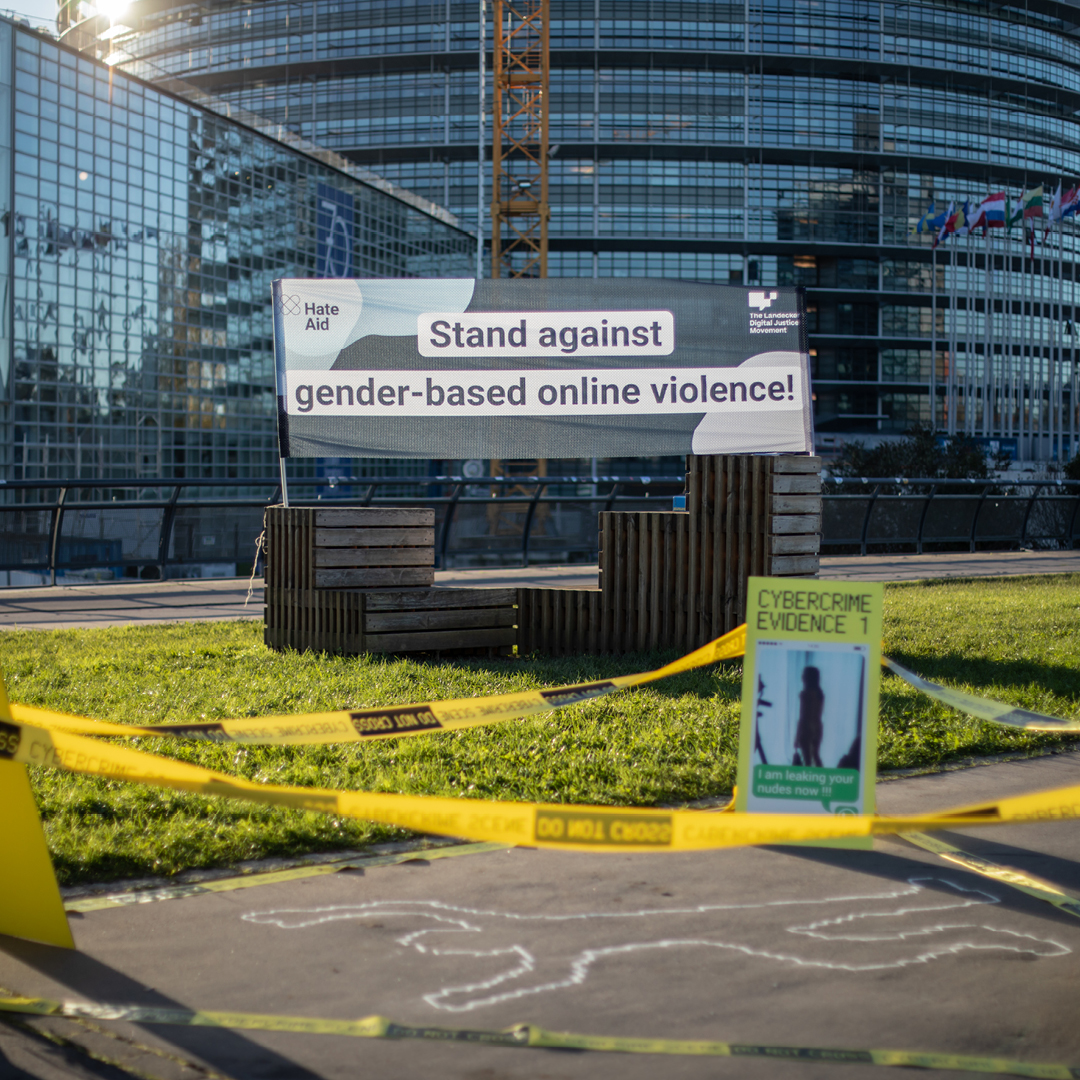Deepfakes and dick pics: EU protects women from digital violence
An important step against gender-based online violence: The nonconsensual dissemination of sexualised deepfakes and intimate images, cyberstalking, cyber harassment as well as the unsolicited sending of sexually explicit material images will now be criminalised across Europe. This was announced yesterday by the rapporteurs of the new Directive on combating violence against women and domestic violence. For years, the non-profit organisation HateAid has been advocating for a better protection from image-based sexual abuse that mainly effects women. This demand was now prominently addressed in the negotiations.
After nearly two years of negotiations, the Directive on combating violence against women and domestic violence establishes a minimum standard for protection against gender-based violence in the European Union. HateAid welcomes this as a necessary step forward to protect women online that are affected by highly sexualised and oftentimes violent attacks that aim to intimidate and silence them. Especially the nonconsensual dissemination of AI-generated deepfakes and other forms of image-based sexual abuse has become a dangerous threat to women according to HateAid’s experience. The potential dimension of this was recently exemplified by the experience of global icon Taylor Swift.
Josephine Ballon, CEO of HateAid, comments:
“Gender-based online violence is a mass phenomenon and needs to be considered as part of an antifeminist backlash. Its aim is to push women out of the public discourse with fear and shame caused by misogynist attacks. Finally, the EU acknowledges that this affects all of us as a society by adopting this Directive as a minimum standard for future legislation across the EU. It is now on the member states to implement and enforce it. Currently, how gender-based violence has been handled varies significantly depending on the member state in which the victims reside. For Germany, the new Directive means for example that there need to be new laws against image-based online violence.”
HateAid has been advocating and campaigning for comprehensive protection against gender-based online violence in the political process leading to the new directive. The focus of this commitment has been on criminalising the dissemination of nonconsensual sexualised deepfakes and unsolicited sending of intimate images. Both demands were addressed in the final negotiations. Additionally, the rapporteurs announced important improvements in capacity building and training of law enforcement institutions which HateAid also advocated for. With this demand HateAid was drawing from the experience of working with specialised cybercrime units in Germany that significantly improved victims’ protection and law enforcement on the internet.
The EU legal framework is urgently needed, as nearly one in three European women has experienced violence on the internet. Besides the significant consequences for victims, such as anxiety, stress, and depression, violence has immense effects on women’s equal participation. Indeed, 52 percent of women in the EU refrain from expressing their opinions online due to fear of hate. Digital violence forces women out of online spaces, depriving them of one of our crucial platforms for debates.
It is important to note that the Directive encompasses gender-specific forms of violence in both the digital and analogue realms. The adoption of the new framework in the last political trilogue is the result of a controversial negotiation on the criminalisation of rape, among other things, which was extremely disputed among the member states.
The details of the final deal will emerge in the coming days and most likely be subject to further discussions and criticism. It is not yet clear how far-reaching the new protective regulations will be and what restrictions they will be subject to. EU member states will be given an implementation deadline to incorporate the EU directive into their domestic legal systems.
HateAid gGmbH
The nonprofit organisation HateAid was founded in 2018 and has its headquarters in Berlin. It advocates for human rights in the digital space and stands up against digital violence and its consequences at both social and political levels. HateAid provides support to people affected by online violence in the form of counselling and litigation financing.
Press contact: presse@hateaid.org, Tel. +49 (0)30 25208837



